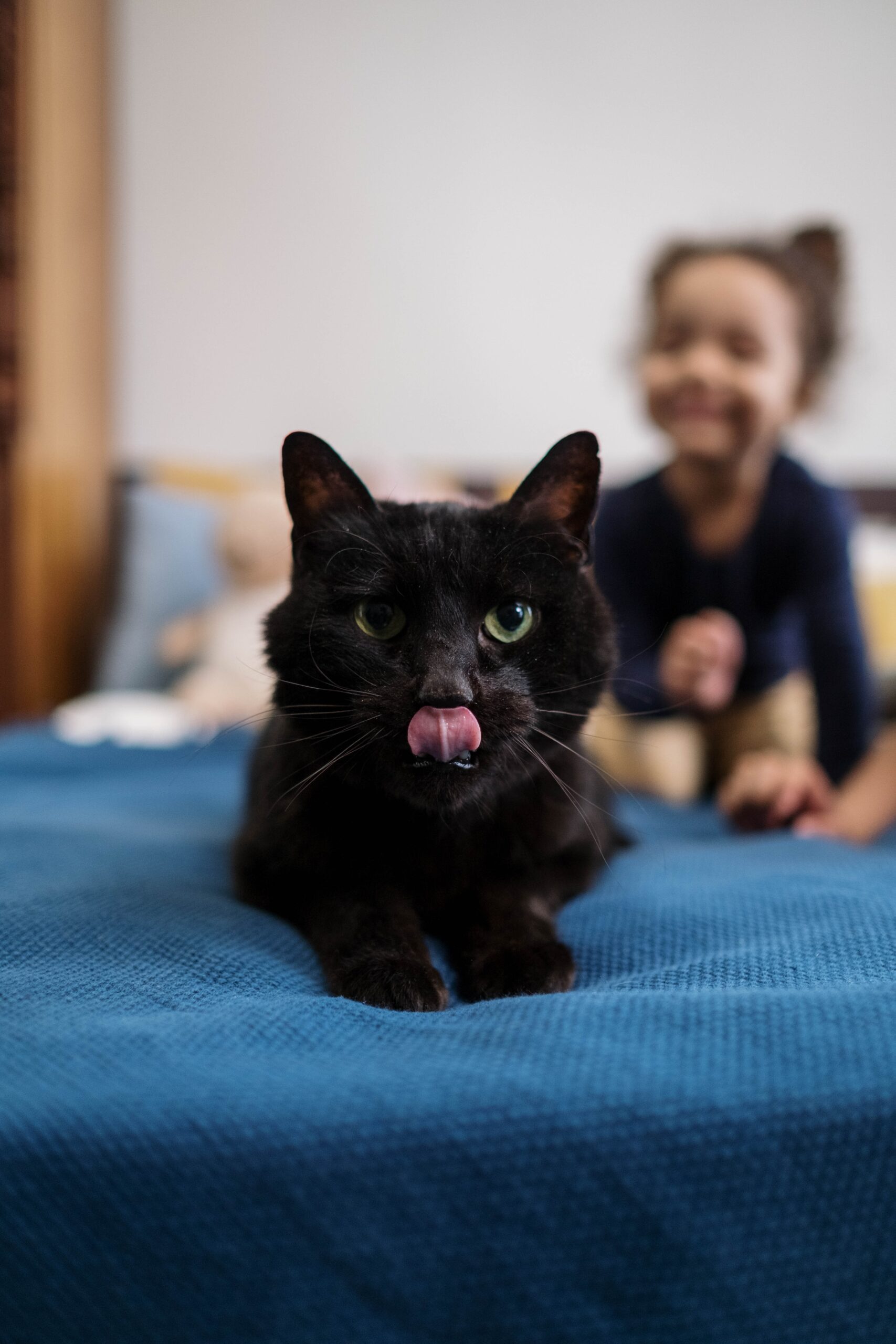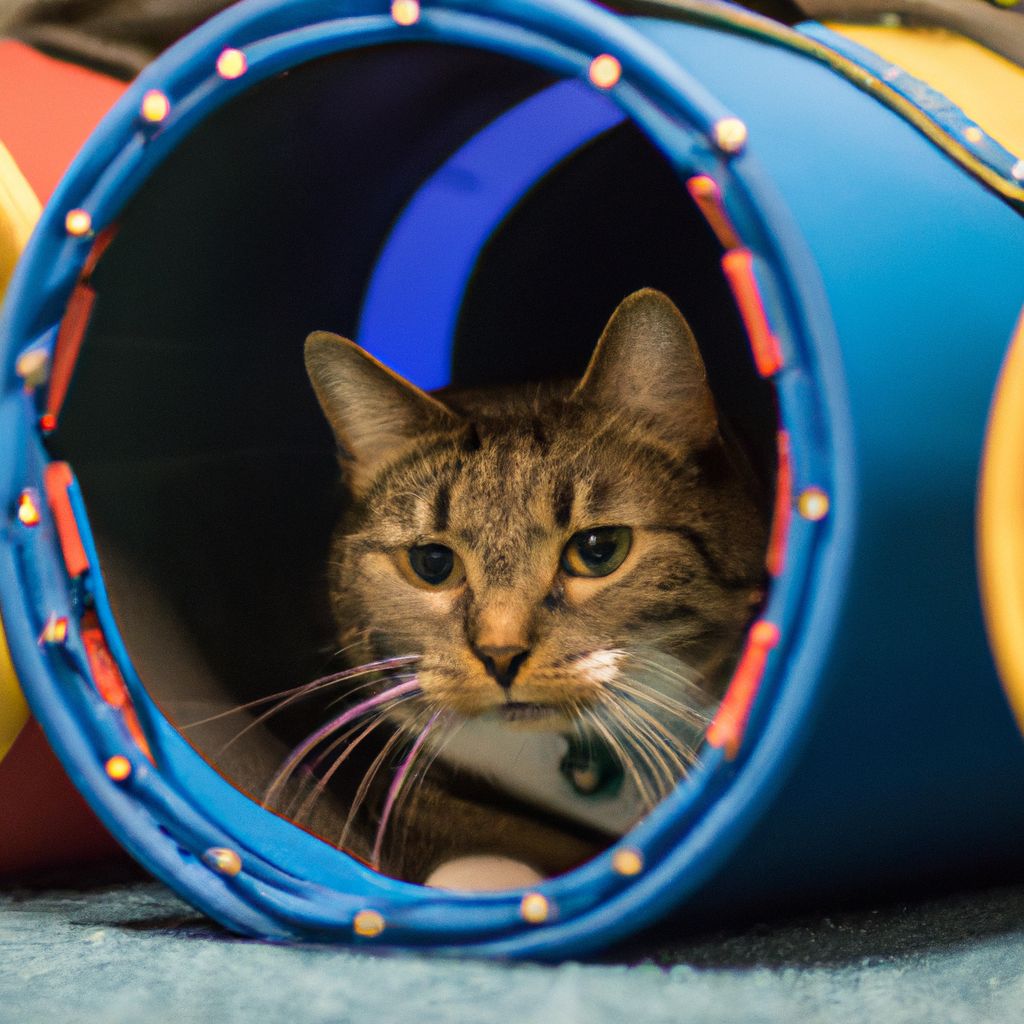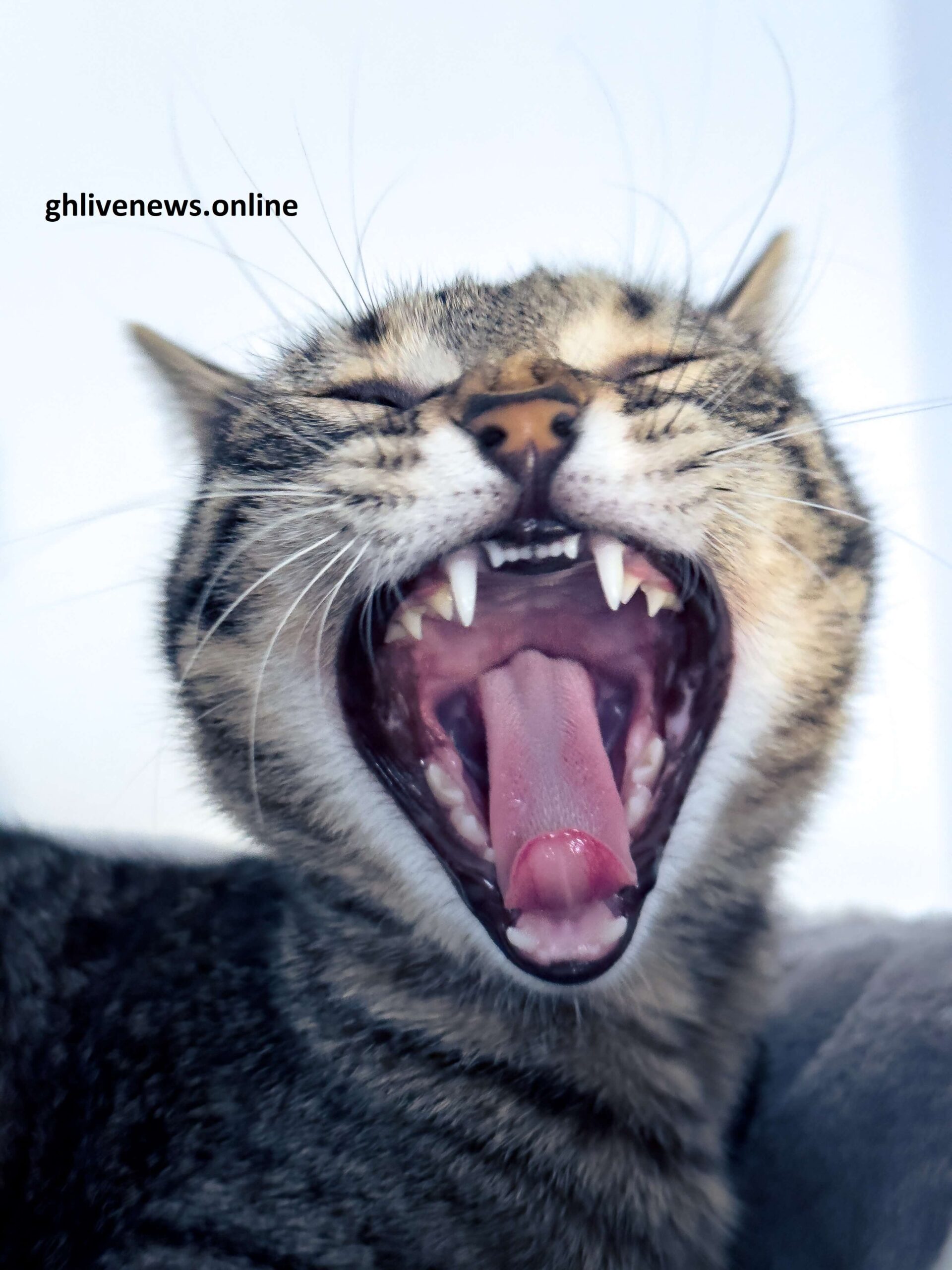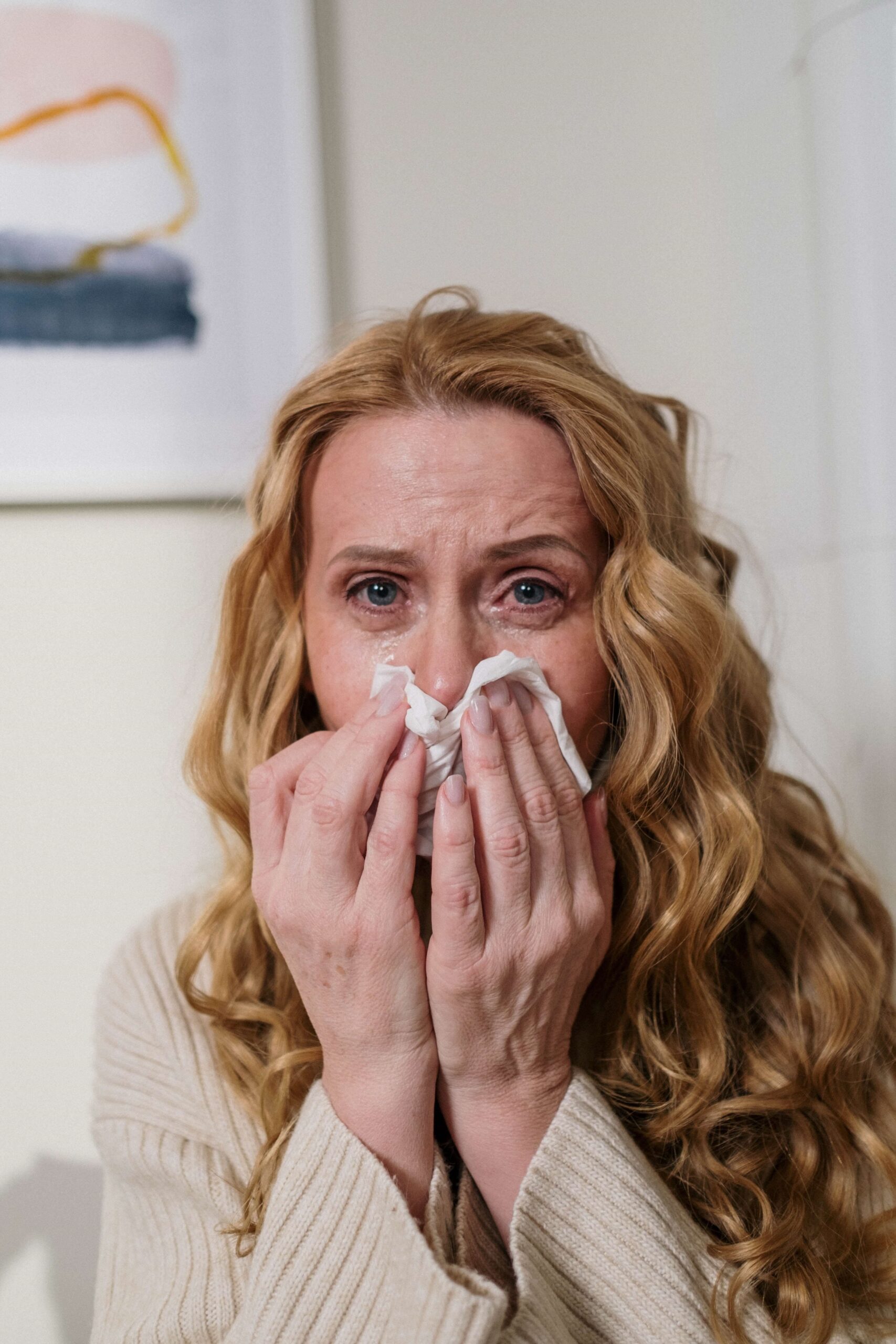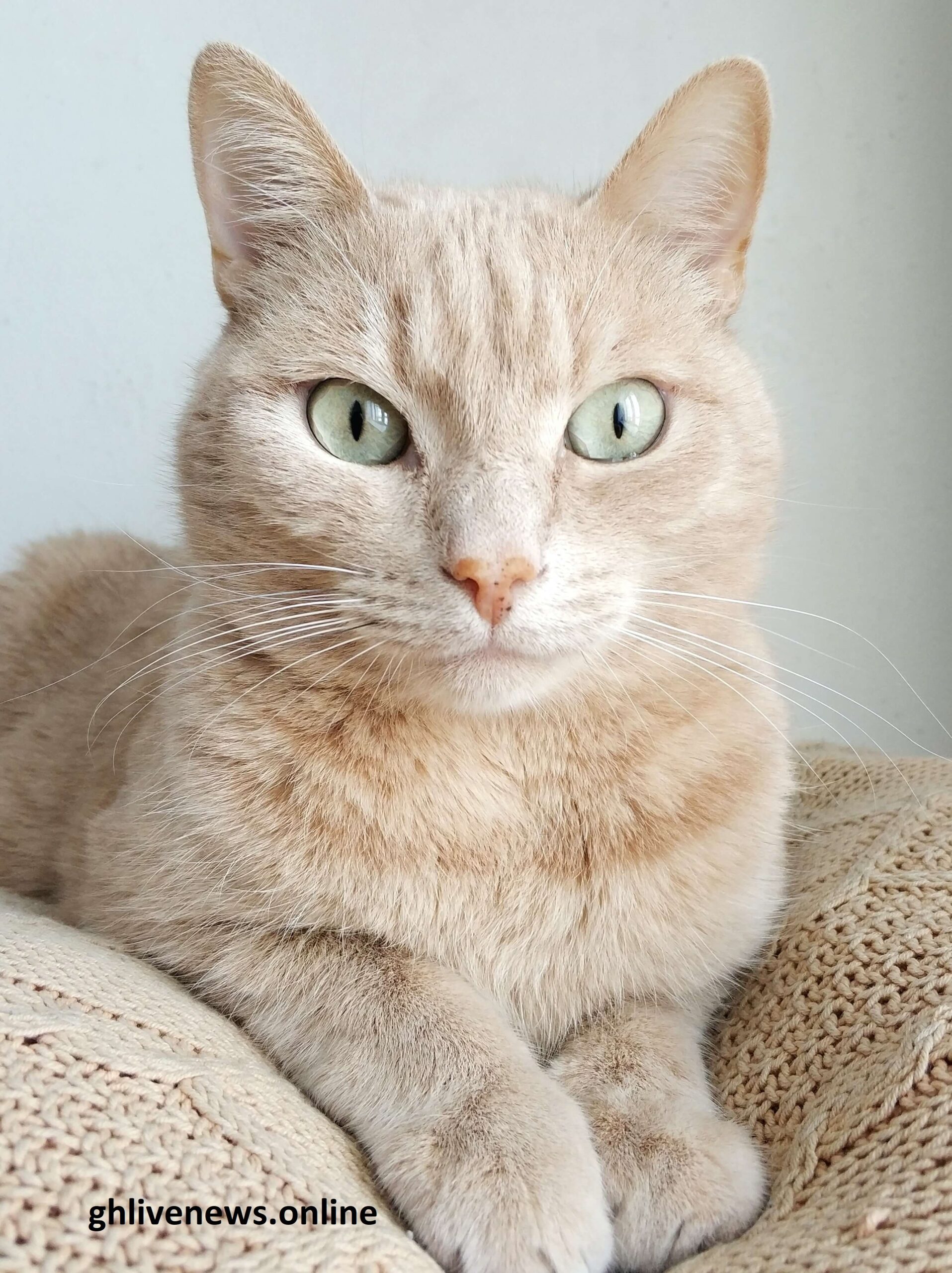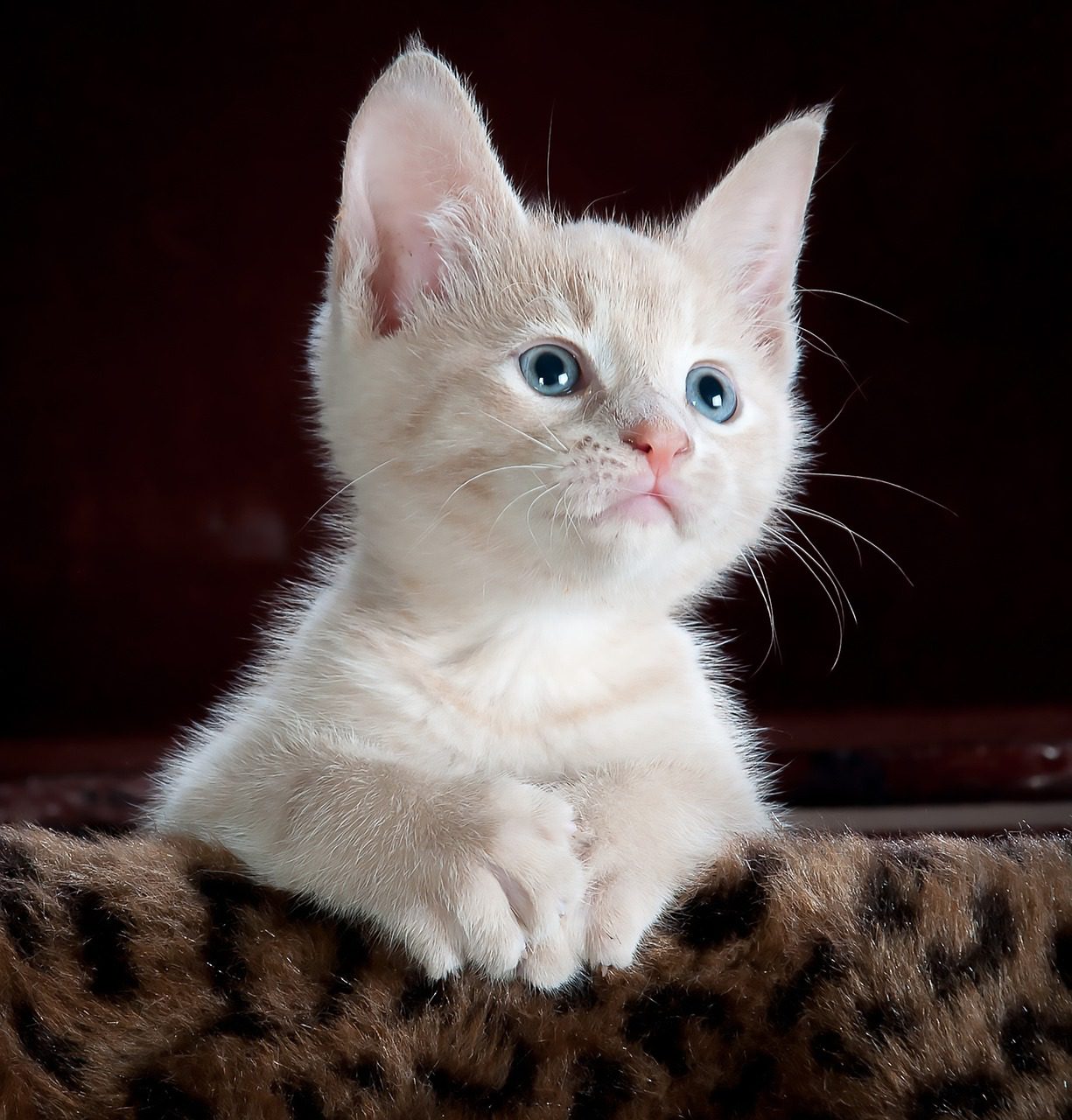.jpg)
Introduction: The challenges of caring for senior cats
Caring for senior cats is a unique challenge! They need special care and attention. Here are five things to remember:
- Diet: Older cats have different nutritional needs. Ask your vet for advice on getting the right balance.
- Mobility: Joint issues can make moving around hard. Provide soft bedding and easy access to the litter box, food, and water.
- Vet check-ups: Regular visits to the vet are essential to monitor health and catch any issues early.
- Dental care: Oral hygiene is even more important as cats age. Try brushing their teeth or dental treats.
- Environmental changes: Consider ramps or steps to help them climb onto furniture or into the litter box.
Every senior cat is different, so get advice from your vet to create a tailored plan. My own senior cat, Whiskers, had arthritis in her hind legs. We installed ramps and put extra cushions on her perches – it made a huge difference to her comfort and mobility.
Caring for senior cats needs attentiveness and flexibility. By providing the right nutrition, vet care, dental hygiene, environmental changes, and individual attention, you can ensure your aging feline companion enjoys a comfortable and fulfilling life!
Understanding the aging process in cats
To better understand the aging process in cats, delve into the section “Understanding the aging process in cats” with a focus on the sub-section “Common physical changes in senior cats.” This will provide helpful insights into the natural physical transformations that older cats commonly experience.
Common physical changes in senior cats
As cats age, they may experience a range of physical changes. These include: thinner, duller fur; weight gain or loss; reduced mobility; vision problems; and dental issues. It is important to observe your cat closely and visit the vet for proper care.
A true story that shows how aging affects cats is that of Max. His fur became thin and matted, so his owner brushed him daily. To make it easier for Max to get around, his owner rearranged the furniture. Regular vet visits helped address Max’s dental issues.
When feeding your senior cat, don’t worry about calories. Chubby kitties are happy kitties who won’t plot your demise!
Providing a balanced diet for senior cats
To ensure your senior cat’s well-being, provide a balanced diet with a focus on their specific needs. Nutritional requirements for senior cats and recommended diet options for optimal health are essential aspects to consider. Let’s explore how you can meet your furry companion’s dietary needs and maintain their overall health and vitality in their golden years.
Nutritional requirements for senior cats
Our furry companions need different nutrition as they age. Giving them an appropriate diet is key for their health and happiness. Here are the requirements for senior cats:
- Age-appropriate: Cats 7+ need a specific diet for seniors. It’s lower in calories and higher in nutrients like protein, vitamins, and minerals.
- Protein: Older cats need high-quality protein to keep muscles strong and body functions good. Look for foods with animal-based proteins such as chicken or fish.
- Fiber: Fiber helps digestion and prevents constipation. It can also help with weight and diabetes.
- Fluids: Dehydration is a worry for older cats. Ensure they have access to fresh water. Wet food or a water fountain can help if they don’t drink enough.
- Other nutrients: Omega-3 fatty acids for joint health, antioxidants for the immune system, and glucosamine for mobility – your cat may benefit from these.
- Veterinarian: Ask your vet about your cat’s individual diet needs. They can give advice tailored to them.
My tabby, Luna, aged 14 was having arthritis issues. I consulted my vet and switched her food to one with added glucosamine and omega-3 fatty acids. In weeks, she was moving better and healthier. A balanced diet made all the difference.
Healthy diets can make for happy senior cats!
Recommended diet options for optimal health
It’s a must to give senior cats a balanced diet for them to stay healthy. The right nutrients are key. Here are some food choices for senior cats:
- Raw Food – Uncooked meat, bones, and organs.
- Wet Food – Moist food with water and flavors.
- Grain-Free – No wheat, corn, or soy.
- Limited Ingredient – Few ingredients to avoid allergies.
Hydration must be given with wet food, and watch out for weight gain. Older cats need fewer calories.
Tip: Ask a vet for the best diet for your senior cat’s needs.
Senior cats may be a bit more plump, but that just adds to their cuteness!
Maintaining a healthy weight in senior cats
To maintain a healthy weight in senior cats, address the importance of regular exercise and effectively manage weight-related health issues. Regular exercise promotes vitality and overall well-being, while weight management is crucial for preventing potential health issues.
The importance of regular exercise
Regular exercise is essential for senior cats to stay healthy and fit. It helps them avoid obesity and keep their muscles toned and joints flexible. Cats who regularly exercise are less likely to have health issues from a sedentary lifestyle.
Also, exercise boosts mental stimulation for senior cats. Interactive play with toys and gentle walks can keep them engaged and entertained.
Exercise even aids digestion and prevents constipation. It stimulates the digestive system and aids in food movement through the intestines.
For cats with joint issues, gentle exercises like stretching or low-impact activities can improve joint flexibility and reduce pain caused by inflammation.
The AAFP recommends that senior cats do at least 20 minutes of moderate exercise per day. However, consider any pre-existing health conditions before starting an exercise routine. Speak with a vet, so the activities chosen are safe and suitable for your cat’s individual needs.
Managing weight-related health issues
Weight issues in senior cats are manageable. Strategies include:
- A balanced and portion-controlled diet.
- Encouraging regular exercise.
- Monitoring food intake.
- Promoting hydration.
- Seeking vet guidance for tailored weight management plans.
Age-related changes in metabolism and reduced activity can lead to weight gain too. Diet needs must be adapted to maintain ideal weight and address any health concerns.
Successful management of weight issues can ensure senior cats lead healthier, happier lives. It’s essential to keep up with their health conditions – slippery, but necessary!
Monitoring and managing common health conditions in senior cats
To effectively monitor and manage common health conditions in senior cats, take proactive steps. Focus on dental health care, arthritis and joint health, as well as kidney disease and urinary problems. Each sub-section addresses specific concerns and offers solutions to ensure the well-being of your senior feline companion. Their overall health and quality of life depend on your vigilance and attentiveness to these areas.
Dental health care
For senior cats, dental health is vital. Neglect can cause periodontal disease and tooth decay. Brushing their teeth with a cat-specific toothbrush and toothpaste twice a week helps prevent plaque and tartar buildup. Human toothpaste is not recommended.
Dental treats and chew toys can also help reduce tartar and promote healthy gums. Be sure to choose products designed for cats. Vet check-ups are important too. A vet will examine their teeth and gums and may suggest professional cleanings or other treatments.
Extensive treatments like tooth extractions or root canals may be needed if dental problems are severe. Consult with a vet specializing in dentistry for felines. According to the AVDC, by age three, many cats already show signs of periodontal disease. So, start proper dental care early.
Remember, senior cats need to manage arthritis, too. Nine lives don’t mean nine functioning joints!
Arthritis and joint health
Arthritis and joint health in senior cats can be tricky, but there are some key facts to know. Symptoms include stiffness, difficulty jumping, limping, and not wanting to play. Diagnosis is done through physical exams and X-rays. Treatment includes medication, supplements, weight management, and physical therapy.
It’s important to remember that senior cats can still have active lives with the right management. Regular check-ups with a vet is key to identifying problems early. The Arthritis Foundation reports that around 90% of cats over 12 have arthritis.
Cats may struggle with kidney problems and urinary issues as they age, but at least they don’t have to worry about finding a public restroom!
Kidney disease and urinary problems
Cats with kidney disease may show decreased appetite, weight loss, increased thirst, and frequent urination. A balanced diet, low in phosphorus but high in protein, can help manage the condition. Prescription renal diets specifically for cats are available.
Older cats may suffer from urinary tract infections or blockages, causing pain. Supply fresh water in multiple places and avoid feeding dry cat food only to avoid dehydration.
Vet check-ups are essential for monitoring kidney function. Your vet will do blood and urine tests, plus imaging studies like ultrasound.
If your senior cat has kidney issues or urinary problems, additional steps can be taken. Keep the litter box clean and provide low sides for easier access. Regular playtime and exercise that suits their abilities can help maintain muscle tone and overall health.
Give your senior cat the very best by creating a Meow Squad-worthy environment with appropriate adaptations!
Environmental adaptations for senior cats
To ensure a comfortable living space and enhanced accessibility for senior cats, this section focuses on environmental adaptations. As we delve into creating a comfortable living space and enhancing accessibility for senior cats, you’ll discover practical solutions to support their well-being as they age.
Feeding Your Cat: Nutrition, Dietary Needs, and Mealtime Tips
Creating a comfortable living space
Creating a comfy living space for senior cats is essential for their well-being and happiness. To do this, cater to their specific needs and make life easier.
- Provide easy access: Place food, water, litter boxes and resting areas on their level. This minimizes movement and discomfort.
- Comfy bedding: Get orthopedic beds that cushion and support arthritic joints. Heated beds can keep them warm during colder months.
- Quiet retreats: Give them quiet spots to relax and have alone time.
- Environmental enrichment: Offer toys, scratching posts and interactive games that fit their abilities and interests. Puzzle feeders engage their minds and satisfy their nutritional needs.
For special needs cats, talk to the vet for personalized advice. Vertical spaces like cat trees and shelves let them explore safely and keep their independence. Every cat’s unique, observe and adjust accordingly. Studies show environmental adaptations can improve their quality of life.
Enhancing accessibility for senior cats
Give them ramps or steps. Senior cats may have trouble jumping or getting to higher places. Ramps or steps can make it easier and stop injuries.
Use litter boxes with low edges. Older cats might not be able to get in traditional litter boxes. Low-sided ones make it simpler and keep their pride.
Organize furniture the right way. Move furniture around to make paths and take away stuff that could stop a senior cat. This lets them move without difficulty or tripping.
Pay attention to details. Things like texture, temperature, and light affect them. Soft sleeping and moderate room temperatures with natural light make them feel better.
Important: Regular vet visits are vital for senior cats. A vet can see what they need as they age. Taking care of them is important since they only have nine lives!
Preventive healthcare for senior cats
To ensure the wellbeing of your senior cat, preventive healthcare is essential. With regular veterinary check-ups and screenings, as well as proper vaccinations and parasite control, you can safeguard your cat’s health as they age. Stay proactive in managing their healthcare needs for a happy and healthy senior feline companion.
Regular veterinary check-ups and screenings
Regular check-ups with a vet are essential for senior cats. They assess body condition, weight, dental health and mobility. Tests like blood tests, urinalysis and X-rays can detect any underlying issues, such as kidney disease, hyperthyroidism, arthritis or cancer. Vaccinations and preventative measures against parasites like fleas, ticks, and heartworms are also included in vet check-ups. Plus, these visits create a bond between the elderly cat and their caretaker. Vets can provide advice on nutrition, exercise and environmental changes to improve the cat’s life.
Be observant of any changes in your senior cat’s behavior in between vet visits. Early recognition of any signs can help with swift diagnosis and treatment. And remember, vaccinations and parasite control are a must!
Vaccinations and parasite control
Vaccinations: Regular vaccinations can protect senior cats from rabies, feline leukemia, and distemper. These shots help boost their immune system and keep them healthy.
Parasite Control: For senior cats, a parasite-free environment is very important. Use vet-approved products to avoid fleas, ticks, and heartworms. Plus, regular grooming helps detect parasites early.
Dental Care: Poor dental hygiene can cause big issues for older cats. Get regular dental check-ups and brush their teeth often to prevent periodontal disease.
Diet and Nutrition: A special diet for senior cats helps promote their overall wellness and supports healthy aging. Talk to your vet about the right diet.
Regular Vet Check-ups: Senior cats should get a physical examination twice a year. This allows for early detection of any health conditions.
Pro Tip: Cleaning the living environment by disinfecting litter boxes, bedding, and toys reduces infection risk for senior cats. Also, keeping their minds active is vital, as a senile cat is like a fuzzy dictator!
Strategies for promoting mental stimulation in senior cats
To promote mental stimulation in senior cats, the article focuses on strategies like interactive toys and puzzles, as well as environmental enrichment. These techniques offer solutions to engage and challenge your senior feline, ensuring their mental well-being. Interactive toys and puzzles, alongside environmental enrichment, provide mental stimulation and entertainment for your aging cat.
Interactive toys and puzzles
Interactive toys and puzzles are an amazing way to stimulate senior cats mentally. These provide entertainment and challenge their cognitive abilities, keeping them alert and interested. Options such as feather teaser wand, interactive laser pointer, and robotic mouse toy can be found in the market. Carefully select toys which are safe, durable, and suitable for your senior cat’s age and abilities. Try various toys to find out what interests your cat the most.
Don’t forget to enrich your senior cat’s life mentally! Interactive toys and puzzles not only prevent boredom but also keep their brain active. Make these stimulating activities a part of their daily routine to keep them sharp and alert for years. Who needs a catnip-filled mouse when you can entertain your senior kitty with a strategically placed houseplant and some breakable porcelain?
Environmental enrichment
Offering toys to encourage active play and exploration is a great way to engage senior cats’ natural instincts. Create vertical spaces, like cat trees or shelves, to stimulate their sense of adventure. Puzzle feeders or treat-dispensing toys offer mental stimulation during mealtime and prevent boredom. Rotate toys and introduce new ones often to keep cats mentally engaged.
Interactive play with caregivers or other pets can provide social interaction and mental stimulation. Play calming classical music and use pheromone diffusers to create a soothing environment. Tailor environmental enrichment to each cat’s age, physical abilities, and preferences. Consider modifications for cats with physical limitations or medical conditions.
The story of Molly, an aging feline, shows the power of environmental enrichment. She was lethargic and showed decreased interest in her surroundings. But after introducing puzzle toys and vertical spaces, her energy and curiosity returned. Her cognitive function improved, and her quality of life soared.
End-of-life decisions for senior cats may be hard, but it’s like planning a retirement party. Celebrate their lives!
Dealing with end-of-life decisions and palliative care for senior cats
To ensure the well-being of your senior cat during their final stages of life, it’s crucial to understand end-of-life decisions and palliative care. Recognizing signs of pain and discomfort helps you provide the necessary support, while hospice care and end-of-life options offer compassionate solutions.
Recognizing signs of pain and discomfort
It’s essential to be aware that these signs may not necessarily mean pain or discomfort. Ask your vet for a checkup to be sure.
We’ve had a senior feline called Whiskers in our clinic. Our vets noticed his reduced mobility and lack of interest in fun activities. We concluded arthritis caused his pain. A treatment plan of meds, physical therapy, and home adjustments gave Whiskers a better life.
It’s our job to give senior cats the care they need. Recognizing the signs is how we can provide them with palliative care. This way, they can have a purrmanent residence with a pawsitive vibe in their sunset years.
Hospice care and end-of-life options
The decision of when to let go of our senior cats can be a hard and emotional affair. Hospice care offers ways to ease their plight in the last days. This includes managing pain, administering palliative treatments, and creating a serene environment. Part of this is understanding when euthanasia may be the kindest choice. It is wise to get expert advice from a vet to assess the cat’s quality of life. Prioritize your cat’s well-being and make smart decisions for their benefit.
Hospice care has many factors to consider. Analgesics can help ease symptoms and enhance their life. Complementary treatments like acupuncture or massage can give extra solace and comfort. A peaceful and tranquil atmosphere lessens stress and helps the senior cat.
In addition, the emotional side of this decision is indispensable. Recognizing signs of discomfort in their behavior is key to giving the right care. Providing tenderness, familiar objects like blankets and toys, can bring relief. Taking time off work or inviting friends and family can offer emotional support.
Lily was a memorable case of a 14-year-old senior cat with kidney disease and arthritis. She was declining despite medical treatment. After consulting with a vet expert in palliative care, Lily’s owner decided to focus on hospice care instead of more aggressive options. With attentive pain management and loving care, Lily spent her last weeks in comfort until she crossed the Rainbow Bridge.
Every situation is different and will need its own approach. Knowing your senior cat’s needs and consulting a vet can help you manage the challenge of end-of-life decisions. Give your beloved feline friend the care they deserve in their final days – cats may have nine lives, but senior cats deserve special attention to make the most of their last one.
Conclusion: The importance of providing specialized care for senior cats
It’s important to give senior cats specialized care, to make sure they’re living a healthy and fulfilling life. As our feline friends age, they need extra attention and care for their unique needs and health issues.
- Senior cats have different nutritional requirements – a balanced diet with higher protein intake and joint health supplements can help their aging bodies.
- Regular vet visits are a must – early detection of health problems can improve their quality of life and lifespan.
- Offering them a comfy, stimulating environment is important too. Litter boxes, soft bedding and toys suited to their age can help with mobility and mental engagement.
Enriching their environment is also beneficial – vertical spaces and interactive toys designed for older cats can promote activity and prevent boredom.
Plus, senior cats love lots of love and attention. Grooming sessions, daily playtime and cuddles can keep their skin and coat healthy, and make them feel better.
Did you know cats are considered seniors when they reach 11 years? We must adapt our care techniques as our furry pals grow older. By providing the right kind of specialized care, we can make sure senior cats have a happy and enjoyable life in their golden years.
Frequently Asked Questions
FAQ 1: What is considered a senior cat?
A senior cat is typically considered to be around 10 years of age or older. However, the age at which a cat is considered a senior can vary depending on factors such as breed and overall health.
FAQ 2: How can I care for my senior cat’s health?
To care for your senior cat’s health, it is important to provide regular veterinary check-ups, maintain a balanced diet appropriate for their age, ensure they have access to fresh water, and provide a comfortable and safe living environment.
FAQ 3: What are common health issues in senior cats?
Common health issues in senior cats include arthritis, dental problems, kidney disease, thyroid issues, and diabetes. Regular veterinary check-ups can help detect and manage these conditions.
FAQ 4: Should I adjust my senior cat’s diet?
Yes, it is important to adjust your senior cat’s diet to meet their changing nutritional needs. Senior cats may require food formulated specifically for their age, which typically has lower calories, higher protein, and additional supplements.
FAQ 5: How can I keep my senior cat active?
You can keep your senior cat active by providing regular playtime with toys, scratching posts, and interactive puzzles. Gentle exercise, such as walking or climbing, can also help keep their muscles toned and joints mobile.
FAQ 6: How can I ensure my senior cat’s comfort?
To ensure your senior cat’s comfort, provide cozy and warm sleeping areas, easy access to litter boxes, and regular grooming to help manage their fur and keep their skin clean. Creating a calm and stress-free environment can also contribute to their overall comfort.
